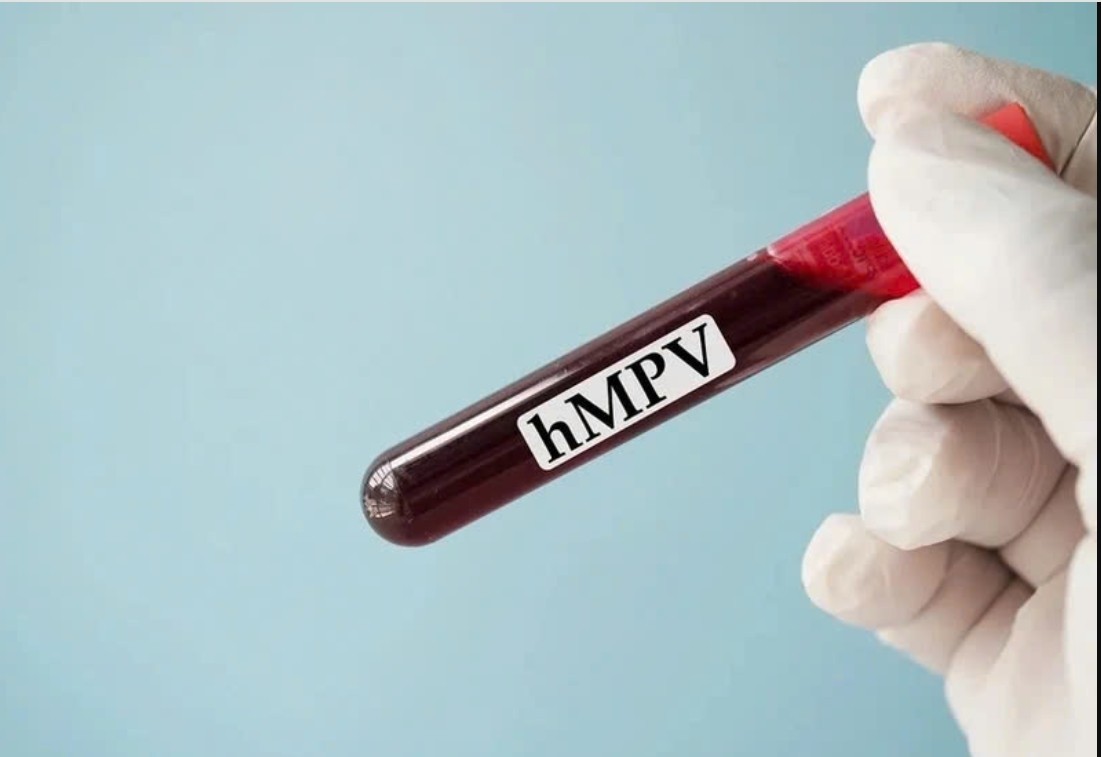What are the best foods to gain muscle mass?
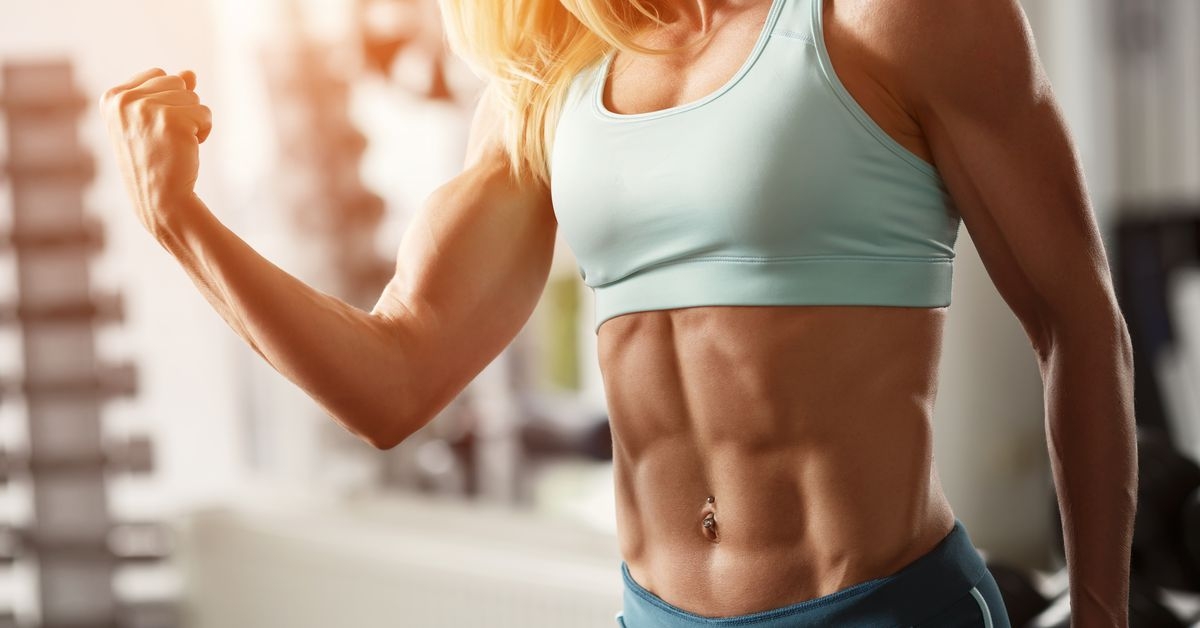 |
| Photo: popsci.com |
How many calories to eat in a day
The easiest way to determine how many calories you need is to weigh yourself at least three times a week and record what you eat using a calorie tracking app. If your weight stays the same, the daily number of calories you eat is your maintenance calories — in other words, you’re not losing or gaining weight, but maintaining it.
During your bulking phase, it’s recommended to increase your calorie intake by 15%. For example, if your maintenance calories are 3,000 per day, you should eat 3,450 calories per day (3,000 x 0.15 = 450) during your bulking phase. When transitioning from a bulking to a cutting phase, you would instead decrease your maintenance calories by 15%, meaning you would eat 2,550 calories per day instead of 3,450.
As you gain weight in the bulking phase or lose weight in the cutting phase, you will need to adjust your calorie intake at least monthly to account for changes in your weight. Increase your calories as you gain weight in the bulking phase and decrease your calories as you lose weight in the cutting phase for continued progression.
During either phase, it’s recommended not to lose or gain more than 0.5–1% of your body weight per week. This ensures that you don’t lose too much muscle during the cutting phase or gain too much body fat during the bulking phase.
Meal timing
| Meal timing can be important: While it won’t make or break your muscle building, eating before and after a workout increases workout endurance and decreases post-workout exhaustion. As for post-workout meals, one study suggests it increases your rate of muscle gain. Another study suggests it makes you more mentally alert for the next few hours. So, err on the side of safety and eat a post-workout meal. It doesn't have to be big — a snack is fine. In fact, the study above suggests at least 50g (roughly 300 calories) for a person weighing 150 lbs (68kg). That equates to two packs of instant oatmeal, one can of beans, or 1.5 cups of brown rice. |
What to Eat
Water
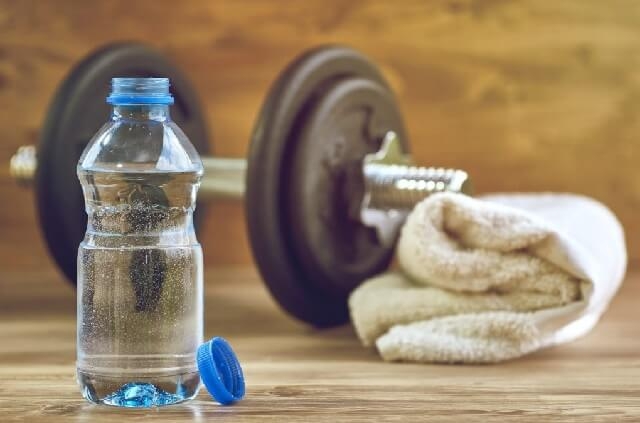 |
| Photo: musclesmagician.com |
Dehydration from lack of drinking will cause headaches. The same kind of headaches that you get after a night of drinking (alcohol dehydrates). Just take a bottle of water to the gym. Sip on it during your workout. I usually drink about 1.5l during my workout (but I live mostly in Asia now where it’s hot most of the time). Then start your day by drinking two big glasses of water. If you drink somewhat during the rest of your day, you should get about 3 liters a day which should be enough.
Unprocessed Foods
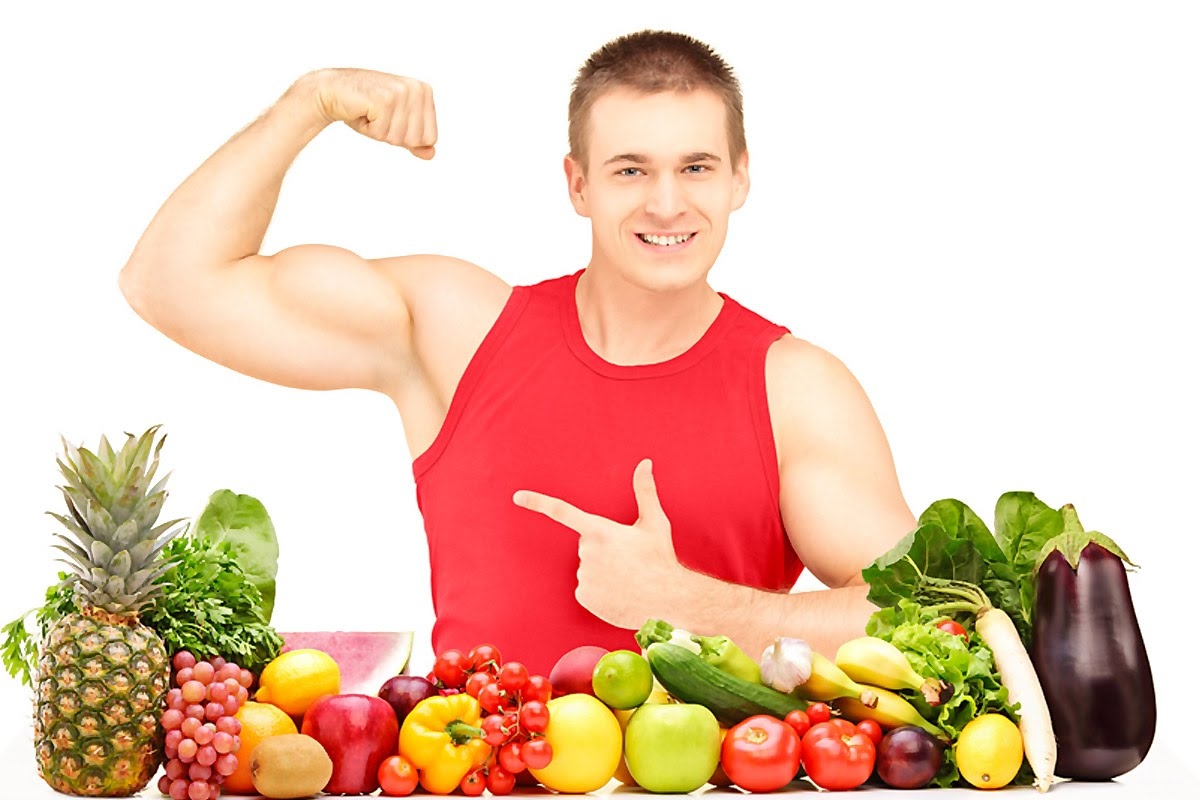 |
| Photo: inlifehealthcare.com |
Unprocessed foods have been unaltered – you can buy them in their natural state. An example of unprocessed food is an apple that was just picked up from the tree. The only processing is to wash the apple, then you can eat it.
The main benefit of eating unprocessed foods is that you have better control over how many calories go into your body. Most processed foods have hidden calories in the form of hidden sugars and fats. This may be good for people wanting to gain weight, but not if you want to maintain or lose weight.
Unprocessed foods: fresh meat, fish, poultry, eggs, veggies, legumes, fruits, rice, oats, quinoa, …
Processed foods: fruit bars, cereals, frozen pizza, cookies, sausages, frozen meals, …
Protein
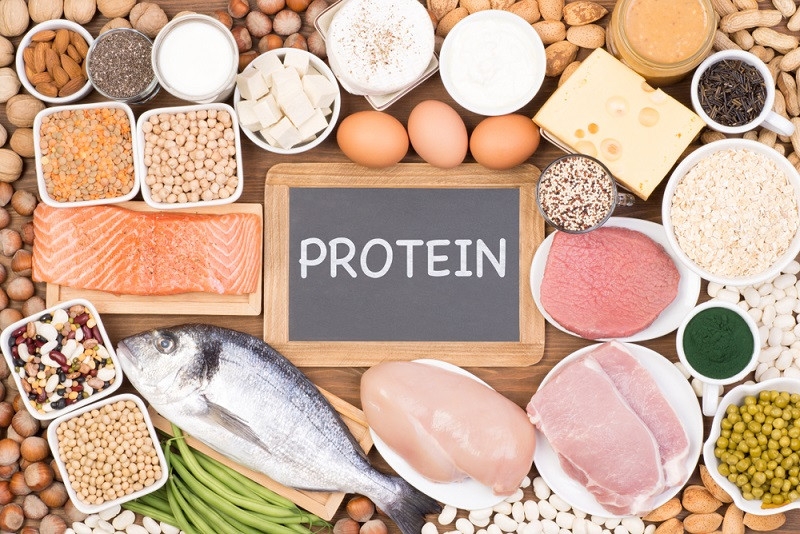 |
| Photo: thejakartapost.com |
Protein is crucial for getting results when lifting weights. Without enough protein, you don’t get proper recovery, and will not get proper progress.
You only need 0.82g of protein per lb of body-weight (1.8g/kg) for muscle recovery and to build extra muscle mass. You can eat:
Red Meat: Beef, pork, lamb, deer, buffalo, etc.
Poultry: Chicken, turkey, duck, etc.
Fish: Tuna, salmon, sardines, mackerel, etc.
Dairy: Milk, cheese, cottage cheese, quark, yogurt, whey, etc
Eggs
Veggies
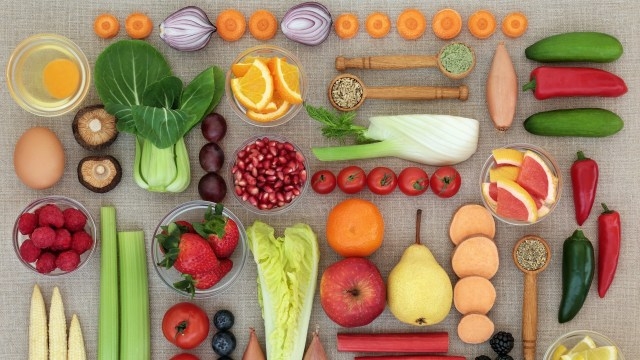 |
| Photo: bornfitness.com |
Veggies are low calorie, which is good for maintaining or losing weight. Because you can eat your stomach full of veggies, so you don’t feel hungry, but while getting zero to no calories in.
A good goal is to have at least half your plate filled with veggies. There are the other benefits to eat veggies with each meal: it will push other things out of your plate. Most people eat way too many carbs because they’re easier to cook and cheaper. But carbs are higher in calories. Vegetables also have vitamins and minerals to help with recovery from lifting. And they have fiber to help with digestion. Some of the best vegetables for you:
Broccoli
Spinach
Salad
Kale
Cabbage
Carb Intake
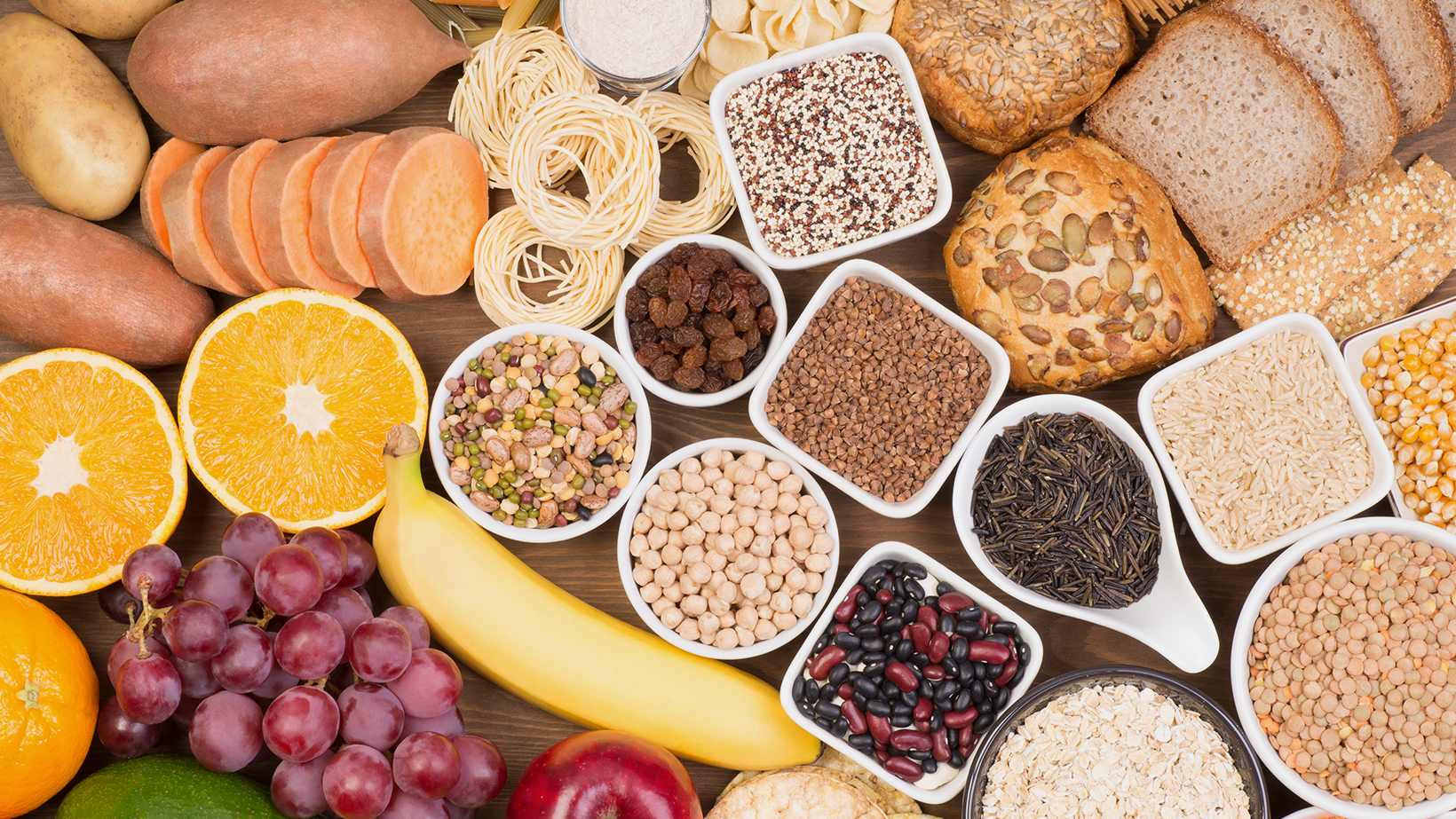 |
| Photo: nutrex.com |
You should not stop eating carbs. Low carb diets are popular, but few people can stick to them long-term. Because carbs are everywhere and most people like their taste.
Keep eating carbs but limit their intake. One simple rule is to eat carbs only once per day, like after your workout. Once a day is enough for most people looking to gain or maintain weight. You can use:
Rice
Pasta
Bread
Quinoa
Oatmeal
Good Fats
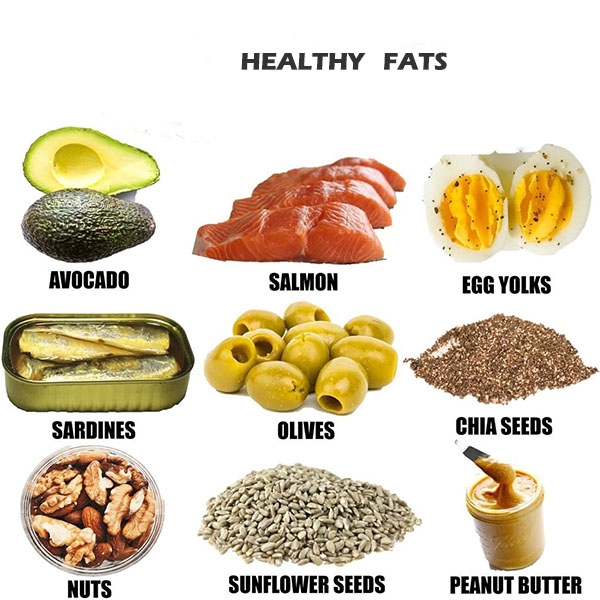 |
| Photo: naturalhealthly.com |
Fat doesn’t make you fat. Excess calories do. So you can eat real butter, whole eggs, and full-fat yogurt. You do not have to eat fat-free yogurt or split the yolk from the eggs. Low-fat food is tasteless. Just go full-fat. It will keep you full longer. Eat also omega-3 fatty food sources like fatty fish (salmon, tuna, mackerel, sardines, etc).
What to Avoid
| While you should include a variety of foods in your diet, there are some you should limit. These include alcohol, sugars, deep-fried foods (fried fish, french fries, onion rings, chicken strips, and cheese curds). These can negatively affect your ability to build muscle and lose fat. In addition to limiting these, you may also want to avoid certain foods before going to the gym that can slow digestion and cause stomach upset during your workout. These include: High-fat foods: High-fat meats, buttery foods, and heavy sauces or creams. High-fiber foods: Beans and cruciferous vegetables like broccoli or cauliflower. Carbonated beverages: Sparkling water or diet soda. |
Follow KnowInsider for more informative posts in the future!
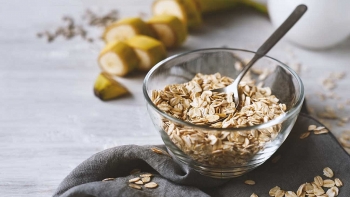 What are the best healthy hangover foods? What are the best healthy hangover foods? Overindulged on the drink and food last night? Here are the best healthy hangover foods collected by Knowinsider to aid your recovery that doesn’t involve ... |
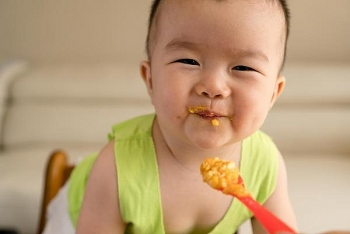 What are the best foods for newborn babies? What are the best foods for newborn babies? Babies don't eat much because of their tiny tummies, so it’s important that their diets contain plenty of nutrients. Let's check out this guide to ... |
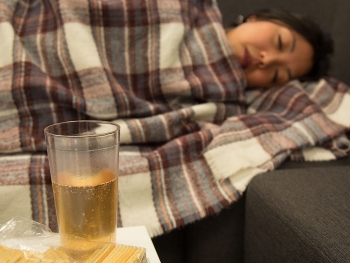 What are best foods when you are on period? What are best foods when you are on period? Periods are the worst with many uncomfortable symptoms, so it's totally understandable that you want to find some ways to reduce these pains. We figure ... |

